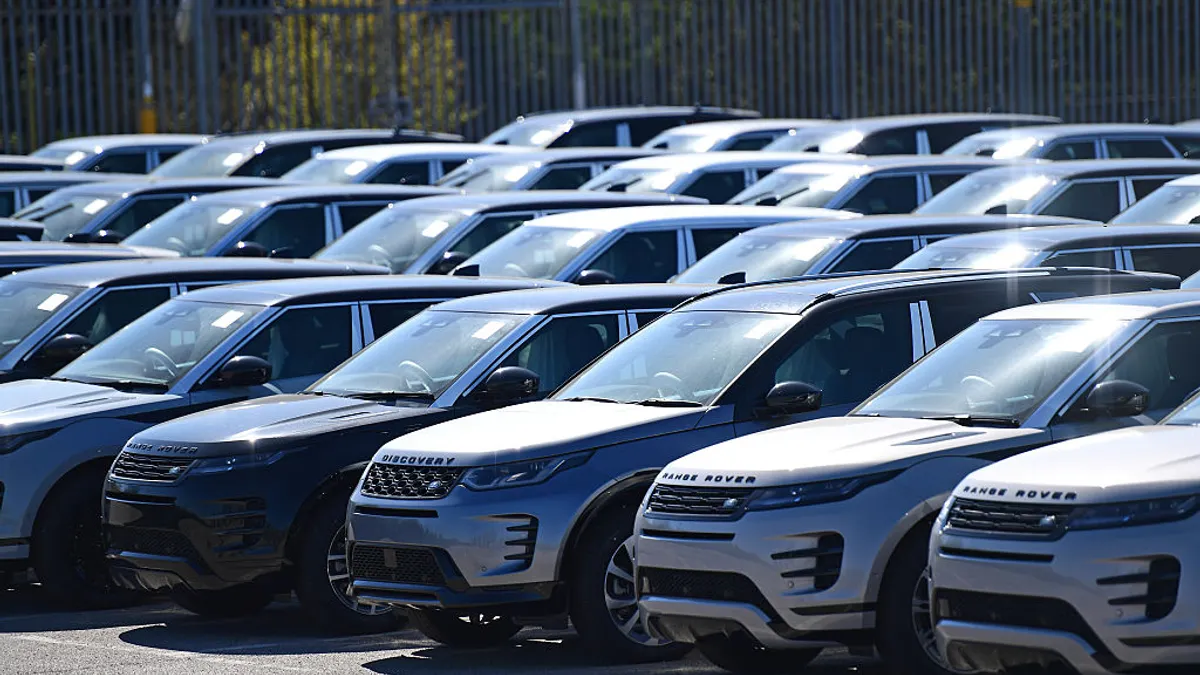OTTAWA – The Canadian automobile industry is welcoming the federal government’s planned imposition of 100% tariffs on Chinese battery-electric-vehicle imports, saying it will give the sector breathing space to set up a comprehensive BEV supply chain.
This follows the Canadian and Ontario governments sinking C$52.5 billion ($39 billion) into creating a mining-to-assembly BEV industry in Canada. The Canadian parliamentary budget officer said in June that C$31.4 billion ($23.3 billion) in federal and C$21.1 billion ($15.6 billion) in provincial spending had elicited C$46.1 billion ($34 billion) in private investment.
Despite this largesse, Ottawa fears these investments could be put at risk by Chinese BEV imports that, it claims, benefit from excessive Chinese government support. Announcing the tariffs Aug. 26, it said: “Canadian auto workers and the auto sector currently face unfair competition from Chinese producers, who benefit from unfair, non-market policies and practices. China’s intentional, state-directed policy of overcapacity and lack of rigorous labor and environmental standards threatens workers and businesses in the EV industry around the world.”
The result is a planned 100% surtax on all China-made BEVs from Oct. 1, which also includes certain hybrid passenger vehicles, along with electric and hybrid trucks, buses and delivery vans. This tariff will be combined with the existing 6.1% duty levied on Chinese BEV exports.
More restrictions may come, with the Canadian government consulting on potential tariffs on China-made batteries, battery parts, semiconductors and critical materials. It also plans to exclude BEVs imported from countries lacking free-trade agreements with Canada from existing zero-emission vehicle consumer subsidies. https://www.canada.ca/en/department-finance/news/2024/08/canada-implementing-measures-to-protect-canadian-workers-and-key-economic-sectors-from-unfair-chinese-trade-practices.html
Speaking to WardsAuto, David Adams, CEO, Global Automakers of Canada, says of fears about China depressing demand for Canada-made EVs and EV inputs: “This is one of the government’s key concerns – significant private and public funds have been expended to secure the automotive industry 2.0 as we transition to an electrified industry. Canada/North America need time, however, to build up their EV ecosystem to be able to source and process EV battery and components inputs. The unreserved access to the Canadian market by those that are not competing from a level playing field…has the potential to undermine all of that.”
Canadian imports of China-made autos and light-duty vehicles have been surging, up from C$208 million ($154 million) in 2020; to C$441 million ($325 million) in 2021; C$600 million ($442 million) in 2022; and C$2.6 billion ($1.9 billion) last year, according to federal government figures. Much of the latest surge has involved higher-end BEVs, with Canadian imports of China autos to the port of Vancouver rising 460% year-on-year to 44,356 in 2023, when Tesla started shipping BEVs to Canada from its Lingang free-trade-zone plant in Shanghai.
Adams predicts China-based EV manufacturers already selling in Canada, such as Tesla, will shift logistics and potentially export autos to Canada from other plants, adding: “I don’t believe that the Chinese that are not here yet will give up on the Canadian market. It remains a question of ‘when,’ not ‘if’ they will come.”
Brendan Sweeney, managing director of the Trillium Network for Advanced Manufacturing, warns that the Canadian auto sector should brace for Chinese retaliation. Some battery manufacturers use Chinese machinery, and alternative supplies are not readily available: “Will China now say: ‘We’re not going to send you this machine, right?’ Do we have alternative markets for the EV batteries, and how quickly can we build out the alternative supply chain to get materials for these batteries?” he asks.
Would the move undermine fulfilling the Canadian government’s 2035 target of ensuring all new autos sold are zero emission? Maybe, says Adams: “But the argument is akin to people wanting textile jobs, but also wanting to pay $5 for a t-shirt. If we want a strong auto manufacturing base in Canada, then we need to build the environment to support our own ecosystem…or find something else for 125,000 auto manufacturing workers to do.”
That said, Sweeney stresses that Chinese BEV exporters to Canada have thus far eschewed smaller, cheaper BEVs made by companies such as BYD. And how popular would these smaller autos be in Canadian and U.S. markets keener on larger SUVs and pick-ups? “Are they of the quality that the consumers want?” he says. And they would need a dealer network that would take time to establish, Sweeney adds.
Meanwhile, American, Japanese and German automakers could supply smaller, cheaper BEVs anyway via trade deals such as the USMCA (U.S.-Mexico-Canada Agreement) and CETA (EU-Canada Comprehensive Economic and Trade Agreement).
Ultimately, the Canadians are meshing with American protection against cheap Chinese BEVs, in the form of the 100% duties announced by the Biden Admin. Without the Canadian duties, Chinese BEVs could have evaded them by entering Canada at 6.1% duty, being re-exported to the U.S. potentially with a nominal 2.5% extra duty.
Ross McKenzie, board director at ITS Canada (Intelligent Transport Systems) says: “I don't think that would have happened or have been allowed to happen. It would have been something the U.S. would have picked up and put the broad trading relationship between Canada and the USA at risk. With (China-made) Teslas going through Canada to the U.S., someone needed to be astute enough in Canada to stop this or the U.S. would not stand for it.”
He adds: “There’s no fair trade in Chinese EVs. They’re trying to buy their way into markets.”




















